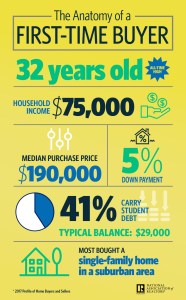
Wouldn’t it be nice to beat the summer time heat in a swimming pool? Besides cooling off, the idea of having a swimming pool is attractive to many home owners for many reasons, including entertaining guests and exercise (if large enough). Pool company advertisements suggest a swimming pool can make your yard more attractive, and add value to your home. But is a swimming pool really worth it? It all depends on the local housing market and your lifestyle.
Statistics and information compiled by The Spruce (thespruce.com), an online lifestyle magazine, reveals swimming pool popularity from sources such as the Association of Pool & Spa Professionals and the US Census. Incredibly, there are 10.4 million residential and 309,000 public swimming pools in the United States. Swimming is the fourth most popular activity, and is the most popular among children and teens. The top five states with inground pools are California, Florida, Texas, Arizona, and New York. Swimming statistics in the US indicate that thirty-six percent of children and fifteen percent of adults swim annually.
Before you start digging, there’s a lot to consider. Besides liability and health concerns, let’s discuss a pool’s added value on your home. The question whether adding a swimming pool is a good investment depends on a number of factors. Real estate research typically validates such questions, unfortunately, studies are lacking. However, there is such an analysis from 1981 by Benedict J. Frederick (Effect of a Swimming Pool on Single-Family Home Value; Appraisal Journal; July 1981, Vol. 49 Issue 3, p376). Even Frederick confessed he was hard pressed to find academic interest in the topic, citing a previous study from 1961. Nonetheless, the study conducted in suburban Baltimore yielded these conclusions: A pool can add about 7 percent to the price of a home; a pool’s market value may be 50-75 percent of the pool’s replacement cost; having pool amenities, such as a heater, can boost value; 40 percent of the market believe having a pool is a liability.
A swimming pool’s added value may be tricky, especially if other neighborhood homes don’t have a pool. If you’re the only residential pool in the neighborhood, the added value to your home may be minimal. In fact, having a swimming pool may be a disincentive for many home buyers, and could negatively affect the value.
There’s also the expense of maintaining a pool. Melissa Dittmann Tracey, writing for Realtor Magazine (Are Pools Worth the Expense?; nar.realtor), points out that typical swimming pool maintenance can have an annual cost of about $3,000-$5,000. And that’s if everything works properly. If components need replacing, then the cost can rise quickly. Older pools require updates and component replacements. Resurfacing or redecking expenses can vary, but Tracey estimates a typical cost to be $5,000 to $10,000 (depending on size of pool). Renovating a pool can cost upwards of $20,000. If you’re tired of the pool and want to reclaim your back yard, removing a pool can also be expensive. Depending on the pool and yard size, a pool removal typically ranges from $3,000 to $15,000.
Given the research and industry statistics, the decision to build a back-yard swimming pool is more likely a lifestyle choice rather than for home improvement. However, for those who enjoy the pool but don’t want the expense or liability of ownership, joining a club or swimming at the public pool are common alternatives.
By Dan Krell
Copyright © 2019
Original located at https://dankrell.com/blog/2019/07/04/swimming-pool-and-home-value/
If you like this post, do not copy; instead please:
link to the article
like it on facebook
or re-tweet.

Disclaimer. This article is not intended to provide nor should it be relied upon for legal and financial advice. Readers should not rely solely on the information contained herein, as it does not purport to be comprehensive or render specific advice. Readers should consult with an attorney regarding local real estate laws and customs as they vary by state and jurisdiction. Using this article without permission is a violation of copyright laws.




